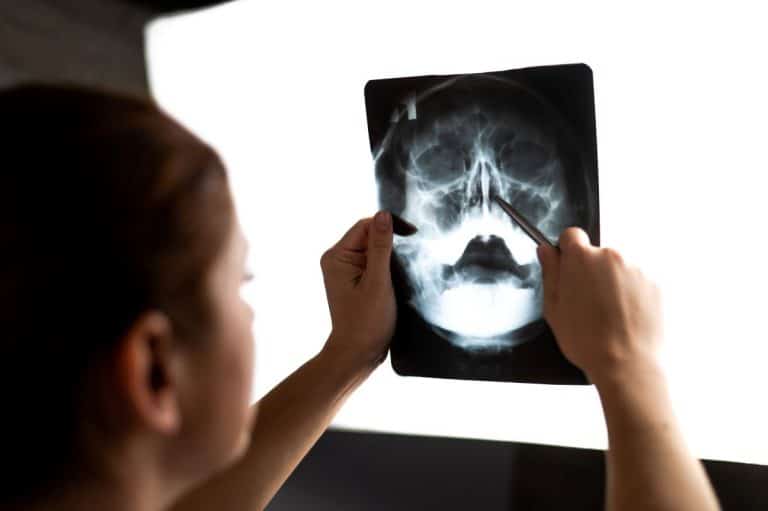Find Relief with Sinus Surgery
It’s frustrating when chronic sinusitis symptoms don’t respond to medication, but this doesn’t mean you need to accept them as part of your daily life. There are several forms of sinus surgery that can remove any obstructions and enlarge the sinus openings. The goal of these procedures is to improve both airflow into the sinuses and drainage of fluids out of the sinuses.
Sinus surgery is minimally invasive and has little risk for complications. Our team can help you determine if you would benefit from one of these procedures.

When Is Sinus Surgery Needed?
To determine if you are a candidate for sinus surgery, your otolaryngologist will examine your ears, nose and throat for obstructions and other abnormalities.
You may benefit from sinus surgery if:
- You have chronic sinusitis, meaning your symptoms have lasted 12 weeks or longer and does not respond to medication.
- You have nasal polyps, or noncancerous growths lining your nose or sinuses.
- Sinusitis has caused other health problems like pneumonia, worsening asthma, eye infections or meningitis.
We’re able to assess any sort of anatomic issues that are preventing someone from being able to clear a sinus infection or a cold, to do allergy testing to see if there are underlying allergies, and then also being able to image the sinuses quickly in our office with our CT scanner.
Dr. Tony Peter
From there we can determine what procedures can provide more long-term relief, and hopefully permanent relief, for these patients. So we really can assess it from the very beginning states and provide definitive treatment all the way through.
What Sinus Surgery Options Are Available?
- Functional Endoscopic Sinus Surgery (FESS): A nasal endoscope visualizes the natural drainage pathways of the sinuses, and specialized instruments are then used to remove tissue to widen those pathways.
- Propel Sinus Implants: A dissolvable implant is inserted into the sinus openings, where it delivers an anti-inflammatory steroid.
- Balloon Sinuplasty: A balloon catheter is inserted into the sinus passages and is gently inflated. The goal is to expand the sinus openings without removing tissue.
- Image-Guided Sinus Surgery: Used for complex sinus passages, your surgeon uses a 3D CT scan mapping system with computer chips embedded in their instruments using infrared signals. This allows the surgeon to accurately link your anatomy with the scan to guide those instruments safely and accurately through the area.